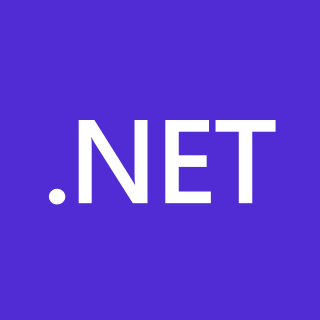Related Research Articles
The Common Language Infrastructure (CLI) is an open specification and technical standard originally developed by Microsoft and standardized by ISO/IEC and Ecma International that describes executable code and a runtime environment that allows multiple high-level languages to be used on different computer platforms without being rewritten for specific architectures. This implies it is platform agnostic. The .NET Framework, .NET and Mono are implementations of the CLI. The metadata format is also used to specify the API definitions exposed by the Windows Runtime.
The Organization for the Advancement of Structured Information Standards is a nonprofit consortium that works on the development, convergence, and adoption of open standards for cybersecurity, blockchain, Internet of things (IoT), emergency management, cloud computing, legal data exchange, energy, content technologies, and other areas.
Universal Plug and Play (UPnP) is a set of networking protocols that permits networked devices, such as personal computers, printers, Internet gateways, Wi-Fi access points and mobile devices to seamlessly discover each other's presence on the network and establish functional network services. UPnP is intended primarily for residential networks without enterprise-class devices.

The Geography Markup Language (GML) is the XML grammar defined by the Open Geospatial Consortium (OGC) to express geographical features. GML serves as a modeling language for geographic systems as well as an open interchange format for geographic transactions on the Internet. Key to GML's utility is its ability to integrate all forms of geographic information, including not only conventional "vector" or discrete objects, but coverages and sensor data.

The point of sale (POS) or point of purchase (POP) is the time and place at which a retail transaction is completed. At the point of sale, the merchant calculates the amount owed by the customer, indicates that amount, may prepare an invoice for the customer, and indicates the options for the customer to make payment. It is also the point at which a customer makes a payment to the merchant in exchange for goods or after provision of a service. After receiving payment, the merchant may issue a receipt for the transaction, which is usually printed but can also be dispensed with or sent electronically.
An open standard is a standard that is openly accessible and usable by anyone. It is also a prerequisite to use open license, non-discrimination and extensibility. Typically, anybody can participate in the development. There is no single definition, and interpretations vary with usage.
Open Platform Communications (OPC) is a series of standards and specifications for industrial telecommunication. They are based on Object Linking and Embedding (OLE) for process control. An industrial automation task force developed the original standard in 1996 under the name OLE for Process Control. OPC specifies the communication of real-time plant data between control devices from different manufacturers.
CEN/XFS or XFS provides a client-server architecture for financial applications on the Microsoft Windows platform, especially peripheral devices such as EFTPOS terminals and ATMs which are unique to the financial industry. It is an international standard promoted by the European Committee for Standardization. The standard is based on the WOSA Extensions for Financial Services or WOSA/XFS developed by Microsoft.
In computing, Web-Based Enterprise Management (WBEM) comprises a set of systems-management technologies developed to unify the management of distributed computing environments. The WBEM initiative, initially sponsored in 1996 by BMC Software, Cisco Systems, Compaq Computer, Intel, and Microsoft, is now widely adopted. WBEM is based on Internet standards and Distributed Management Task Force (DMTF) open standards:
Verifone is an American multinational corporation headquartered in Coral Springs, Florida. Verifone provides technology for electronic payment transactions and value-added services at the point-of-sale. Verifone sells merchant-operated, consumer-facing and self-service payment systems to the financial, retail, hospitality, petroleum, government and healthcare industries. The company's products consist of POS electronic payment devices that run its own operating systems, security and encryption software, and certified payment software, and that are designed for both consumer-facing and unattended environments.
Open XML Paper Specification is an open specification for a page description language and a fixed-document format. Microsoft developed it as the XML Paper Specification (XPS). In June 2009, Ecma International adopted it as international standard ECMA-388.
Office Open XML is a zipped, XML-based file format developed by Microsoft for representing spreadsheets, charts, presentations and word processing documents. Ecma International standardized the initial version as ECMA-376. ISO and IEC standardized later versions as ISO/IEC 29500.
The OpenAjax Alliance is an industry group devoted to the set of technologies and Web programming techniques known as Ajax.
The Devices Profile for Web Services (DPWS) defines a minimal set of implementation constraints to enable secure web service messaging, discovery, description, and eventing on resource-constrained devices.
The Association for Retail Technology Standards (ARTS) is an international standards organization dedicated to reducing the costs of technology through standards. Since 1993, ARTS has been delivering application standards exclusively to the retail industry. ARTS has four standards
OPOS, full name OLE for Retail POS, a platform specific implementation of UnifiedPOS, is a point of sale device standard for Microsoft Windows operating systems that was initiated by Microsoft, NCR, Epson, and Fujitsu-ICL and is managed by the Association for Retail Technology Standards. The OPOS API was first published in January 1996. The standard uses component object model and, because of that, all languages that support COM controls can be used to write applications.
JavaPOS, is a standard for interfacing point of sale (POS) software, written in Java, with the specialized hardware peripherals typically used to create a point-of-sale system. The advantages are reduced POS terminal costs, platform independence, and reduced administrative costs. JavaPOS was based on a Windows POS device driver standard known as OPOS. JavaPOS and OPOS have since been folded into a common UnifiedPOS standard.
The Microsoft Open Specification Promise is a promise by Microsoft, published in September 2006, to not assert its patents, in certain conditions, against implementations of a certain list of specifications.

The .NET Framework is a proprietary software framework developed by Microsoft that runs primarily on Microsoft Windows. It was the predominant implementation of the Common Language Infrastructure (CLI) until being superseded by the cross-platform .NET project. It includes a large class library called Framework Class Library (FCL) and provides language interoperability across several programming languages. Programs written for .NET Framework execute in a software environment named the Common Language Runtime (CLR). The CLR is an application virtual machine that provides services such as security, memory management, and exception handling. As such, computer code written using .NET Framework is called "managed code". FCL and CLR together constitute the .NET Framework.
References
- ↑ "Website Excerpts" . Retrieved 14 June 2013.
- ↑ NRF-ARTS.org
- 1 2 "UnifiedPOS" . Retrieved 14 June 2013.
- ↑ "Microsoft Point of Service for .NET v1.12 (POS for .NET)" . Retrieved 14 June 2013.
- ↑ UnifiedPOS. Nrf Arts. Retrieved on 2013-09-27.
- ↑ NRF and Object Management Group form partnership on retail technology
- ↑ "Best POS Tool". Thursday, April 23, 2020